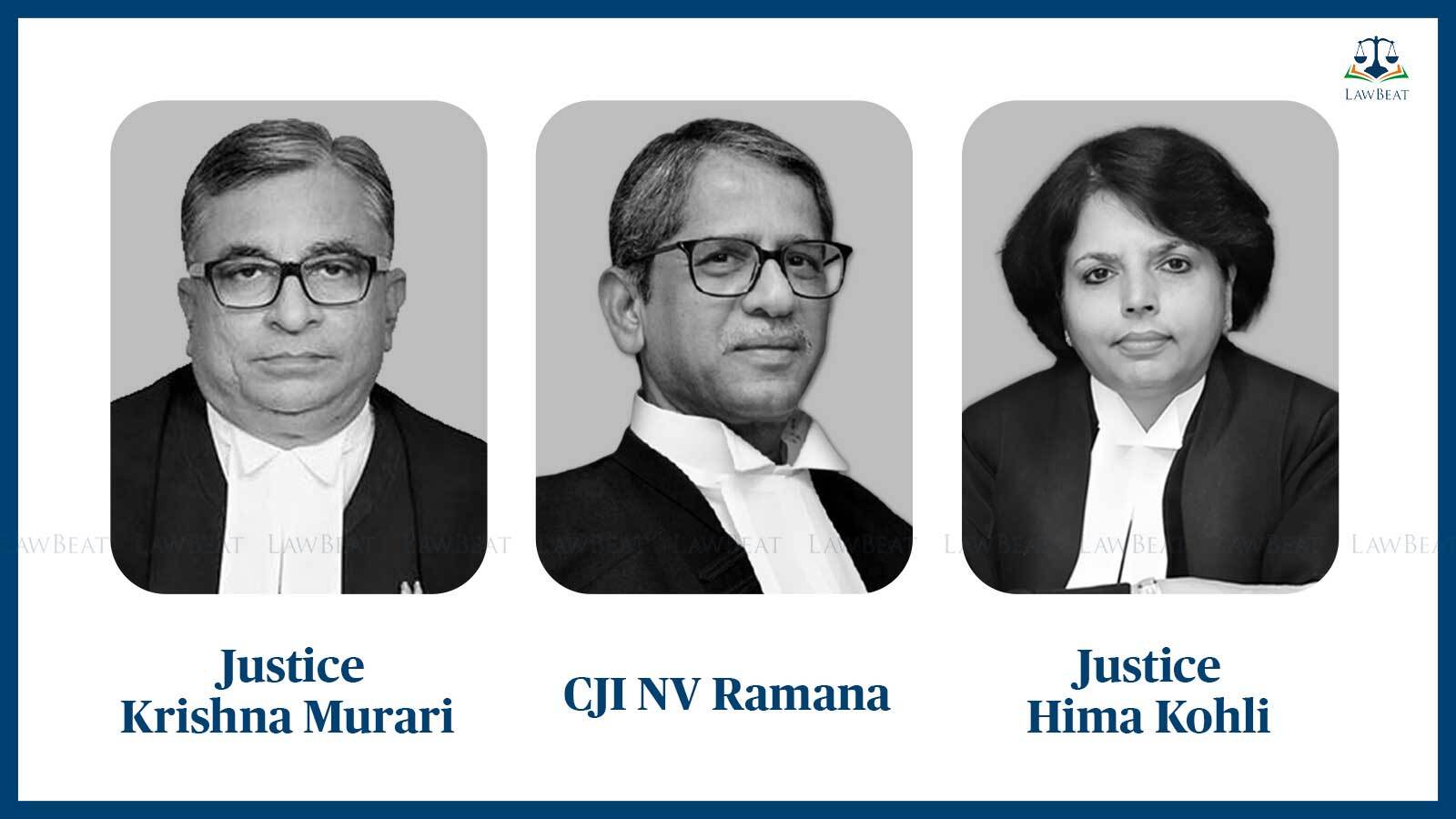Long period of custody, filing of chargesheet and commencement of trial are not persuasive grounds for granting relief to accused u/s 37 NDPS Act: Supreme Court

Court refused to agree with the submission on behalf of accused that since nothing was found from his possession, he is not guilty of the offence for which he has been charged and held it to be a premature assumption.
The Supreme Court on Tuesday held that length of the period of an accused's custody or the fact that the chargesheet has been filed and the trial has commenced are by themselves not considerations that can be treated as persuasive grounds for granting relief to an accused under Section 37 of the Narcotic Drugs and Psychotropic Substances Act, 1985 (NDPS Act).
A CJI led bench made this observation while allowing the appeals filed by the Narcotics Control Bureau and quashing and setting aside the impugned order passed by the Delhi High Court releasing the accused on post-arrest bail.
Secret information was received by the officials of the Narcotic Control Bureau (NCB) that one parcel had been booked by a person from Agra named Gaurav Kumar Aggarwal, to be delivered to one Manoj Kumar at Ludhiana, Punjab and was stored at the godown of a courier company at Village Samalkha, Kapasehra, New Delhi, suspected to contain NRX tablets, being a narcotic drug.
The NCB team reached the said godown and conducted search proceedings. Suspected parcel was opened and 50,000 Tramadol tablets weighing 20 kgs were recovered. As the tablets contained in the suspected parcel had been mis-declared and were without any valid bill, seizure proceedings were initiated by the officials of the NCB.
In the voluntary statement made by the accused Gaurav Kumar Aggarwal under Section 67 of the NDPS Act, he stated that Mohit Aggarwal, the respondent accused before the Top Court, had purchased the above medicines from one Promod Jaipuria alias Davinder Khandelwal, a resident of Jaipur, and the son-in-law of Promod Jaipuria used to look after his business in Agra and that he had a godown where the drugs were stored.
On the disclosure made by Mohit, the Raiding team proceeded to the godown of Promod Jaipuria and conducted a search during which a cache of drugs covered under the NDPS Act were recovered, including 6,64,940 tablets of different psychotropic substances including Tramadol, Zolpidem and Alprazolam tablets/capsules weighing around 328.82 Kgs, 1400 Pazinc Injections amounting to 1.4 ltrs and 80 Corex Syrup bottles weighing 8 ltrs. Another 9,900 tablets weighing 990 gms. were recovered during the search conducted by the NCB officials at the premises of the co-accused Manoj Kumar at Ludhiana.
A plain reading of the non-obstante clause inserted in sub-section (1) and the conditions imposed in sub-section (2) of Section 37 of the NDPS Act indicate that there are certain restrictions placed on the power of the Court when granting bail to a person accused of having committed an offence under the NDPS Act, a bench also consisting of Justices Murari and Kohli noted.
Court added that not only the limitations imposed under Section 439 of the Code of Criminal Procedure, 1973 are to be kept in mind, the restrictions placed under clause (b) of sub-section (1) of Section 37 are also to be factored in by a court granting bail.
"The conditions imposed in sub-section (1) of Section 37 is that (i) the Public Prosecutor ought to be given an opportunity to oppose the application moved by an accused person for release and (ii) if such an application is opposed, then the Court must be satisfied that there are reasonable grounds for believing that the person accused is not guilty of such an offence. Additionally, the Court must be satisfied that the accused person is unlikely to commit any offence while on bail...", the Court remarked.
While holding that the admissions made by the accused in custody could not be relied on by high court, the top court noted that NCB had specifically stated that it was the disclosures made by the accused that had led the NCB team to arrive at and raid the godown of the co-accused, Promod Jaipuria which resulted in the recovery of a large haul of different psychotropic substances in the form of tablets, injections and syrups.
"Even dehors the confessional statement of the respondent and the other co-accused recorded under Section 67 of the NDPS Act, which were subsequently retracted by them, the other circumstantial evidence brought on record by the appellant-NCB ought to have dissuaded the High Court from exercising its discretion in favour of the respondent and concluding that there were reasonable grounds to justify that he was not guilty of such an offence under the NDPS Act...", further opined the court.
Court thus held that the narrow parameters of bail available under Section 37 of the NDPS Act, had not been satisfied in the facts of the instant case.
Case Tittle: NCB vs. Mohit Aggarwal
